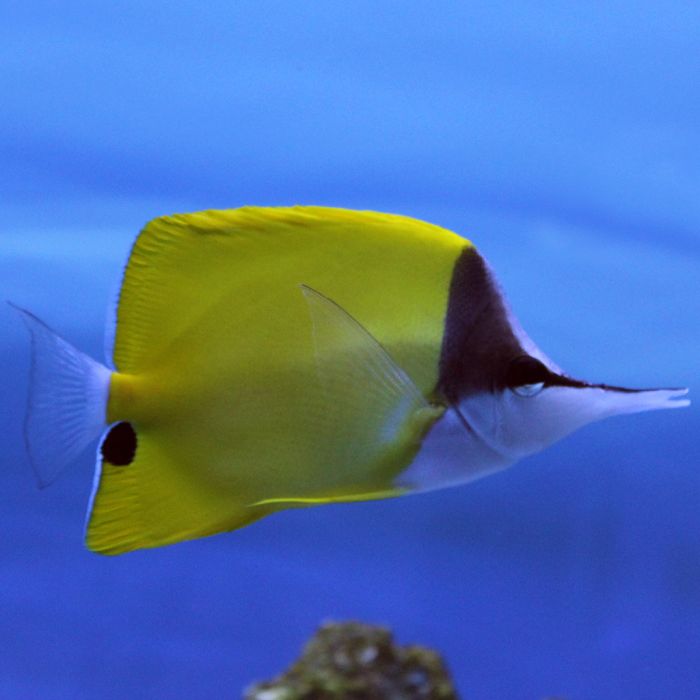Longnose Butterfly (Asia Pacific)
An unmistakably elongated snout gives the Longnose butterfly instant appeal. Its face is dark on top and white on its chin, and its entire body is solid lemon yellow. A single black spot is on its anal fin, just under the base of its tail. It grows up to 9 inches and needs an aquarium of at least 125 gallons.
The Longnose butterfly is normally quite peaceful, and if added first it may be kept with aggressive tank mates. It is aggressive towards its own kind but usually gets along well with other butterflyfish as long as they are all added at the same time. Butterflyfish do not show differences between males and females. They are related to angelfish, but lack the angel's distinctive cheek spines. This species has the amusing habit of occasionally swimming upside down.
A butterflyfish's favorite food is an anemone, so they should not be kept in the same aquarium with one unless it is guarded by aggressive clownfish. The butterflyfish knows to attack the anemone on its mouth, which does not sting, and will make a quick meal of it. Because of this behavior this species is often employed to rid an aquarium of pest anemones such as Aiptasia. Many species of butterfly also benefit from filamentous algae in the aquarium to graze on.
This species is usually coral safe; however caution should be exercised if attempting to keep it in a reef. It may nip on corals, clam mantles, sponges, and feather dusters. They do not typically bother other types of invertebrates such as crustaceans. They feel most secure when there is plenty of live rock to hide in, as well as open space for swimming. This species is easy to feed, but has a very small mouth. It should be offered a wide variety of meaty and herbivore preparations such as frozen Mysis shrimp, enriched brine shrimp, half shell clams, marine algae and Spirulina; it should be fed 2-3 times a day.
Customers who bought this also purchased
 Clown Tang (Asia Pacific)Out of stock
Clown Tang (Asia Pacific)Out of stock
















